“I know that all my promotions and decorations belong to you. I know that I’ve stolen the credit from a real hero.”
|
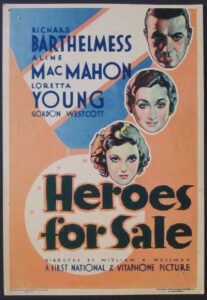
Synopsis:
A war veteran (Richard Barthelmess) whose cowardly comrade (Gordon Westcott) has accepted all the glory for his heroism battles a morphine addiction, then starts life anew in Chicago, where he prospers as the co-owner of a labor-saving laundry machine and marries his sweetheart (Loretta Young). His luck turns again, however, when he’s falsely accused of inciting a riot, and sent away to prison — but he refuses to give up on his dream of helping those less fortunate than himself.
|
|
Genres, Themes, Actors, and Directors:
- Depression Era
- Do-Gooders
- Falsely Accused
- Loretta Young Films
- Veterans
- William Wellman Films
Review:
William Wellman’s hard-hitting tale of an unsung war hero whose [for]giving nature brings him both deep satisfaction and cruel treatment is, as noted in TCM’s review, “ungainly” yet “also unfailingly urgent and never boring”. The film starts off with a compelling exploration of bravery and cowardice during the heat of battle, and we wait with bated breath to hear Barthelmess’s reaction to Westcott’s stinging betrayal:
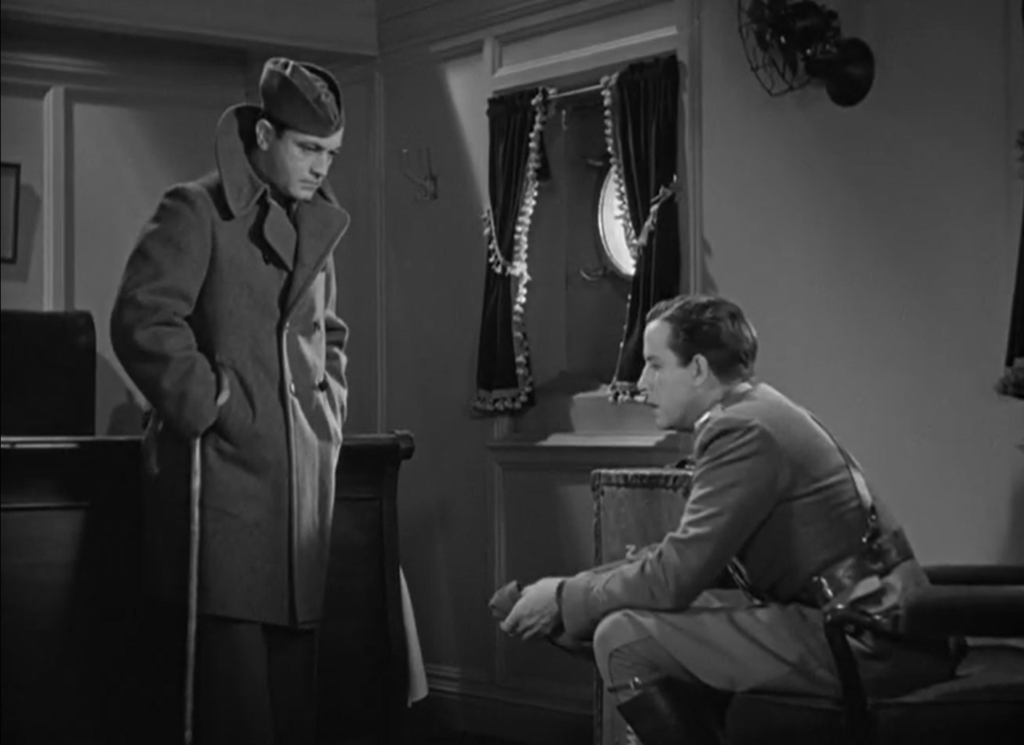
Once this is revealed, however (no revenge is taken by the extraordinarily good-hearted Barthelmess), the screenplay veers from one episode to another in rapid-fire succession — Westcott does show up again, but only in the film’s final scene, in order for Wellman to make the point that both rich and poor suffered under the iron grip of the Great Depression. In the meantime (as indicated in TCM’s assessment) we become oddly compelled by Barthelmess’s travails, watching his character emerge as a true “hero” of the era — someone who is decidedly not for sale, at any cost. The fine cast of supporting actors (particularly Aline MacMahon in a pivotal role) adds to the enjoyment of this unusual little film.
Redeeming Qualities and Moments:
- Richard Barthelmess as Tom Holmes
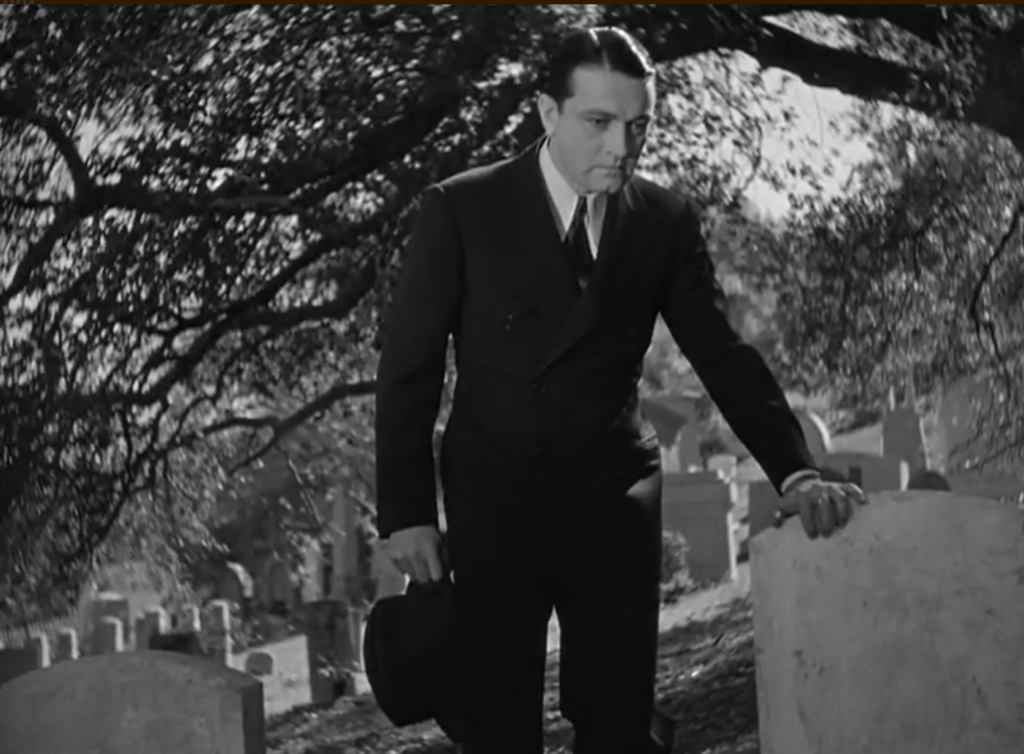
- Gordon Westcott as Tom’s cowardly comrade
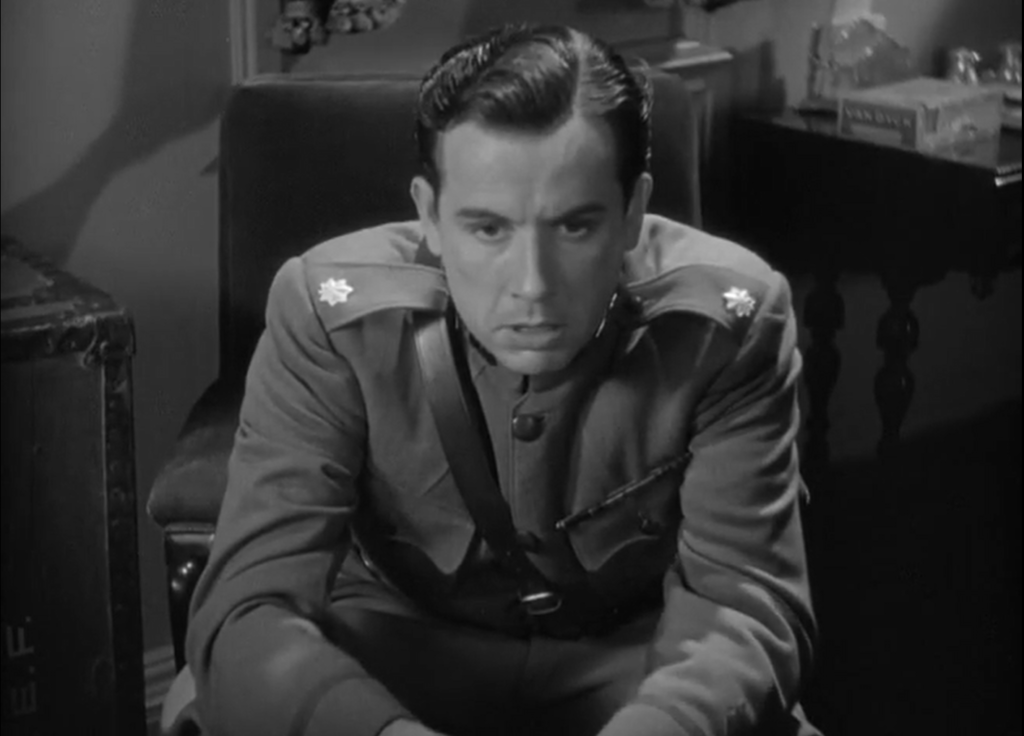
- Aline MacMahon as Tom’s landlady and friend
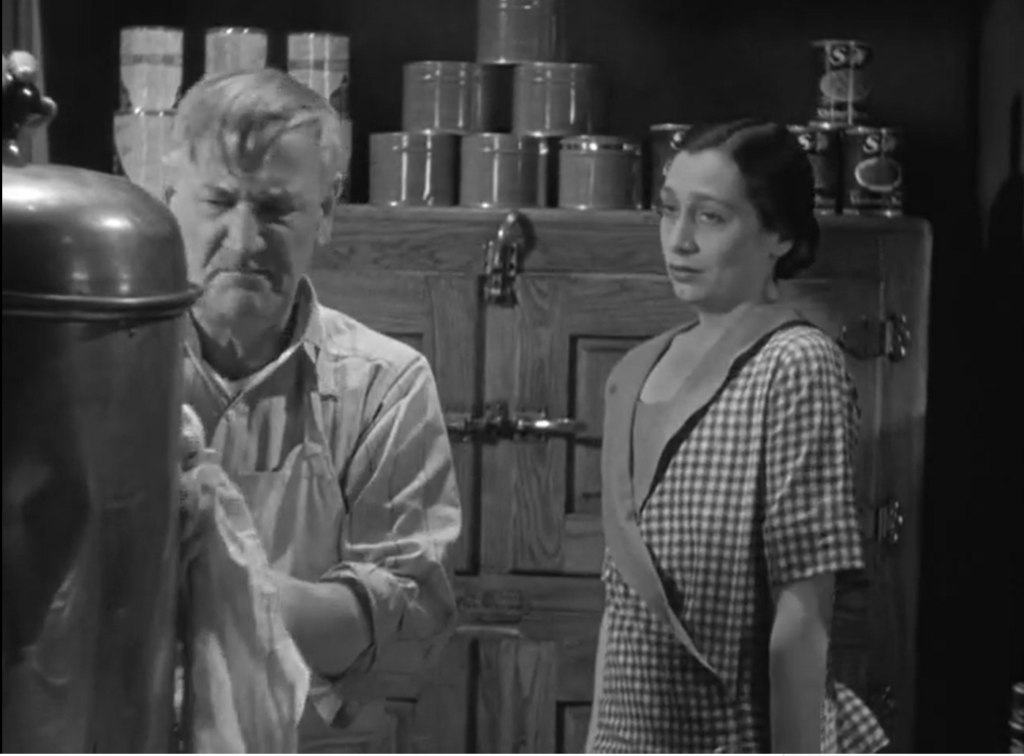
- Loretta Young as Tom’s wife
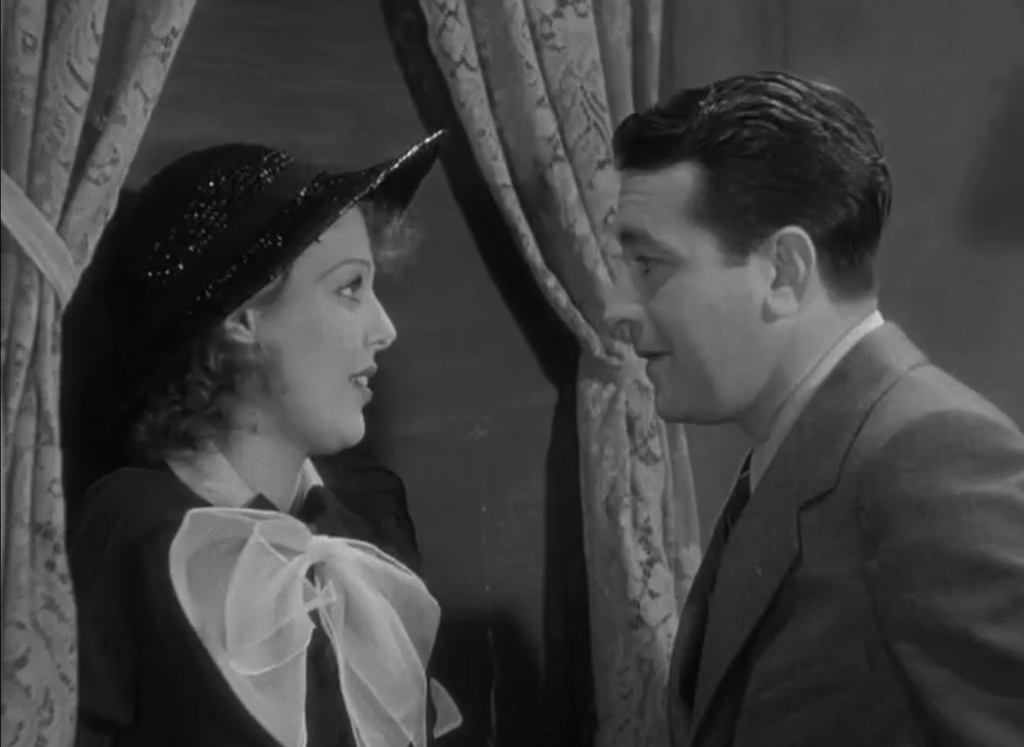
Must See?
No, but it’s recommended.
Links:
|






One thought on “Heroes for Sale (1933)”
A must – another early gem by Wellman, packing enough for a full-length feature into half the time.
I don’t know that I’d call this character study “ungainly” – though, after the first 1/2-hour, one is bound to wonder where the film is headed when everything from that moment seems to work in favor of Barthelmess’ character. The realistic lesson-in-life ‘plot’ is clear, however: bad things happen to good (i.e., strong) people; good things happen to weak people (esp. when they make them happen); good things happen to strong people…but will they remain strong if the rug is pulled out from under?
As noted, ‘HFS’ is “never boring” – even if, around the edges, it’s a tad sloppy:
–when we first see (the charming if not great) Loretta Young – who has just returned from her modest job as a laundry shop worker – she is dressed to the high-society nines, as if she has just attended a classy social event. Wha~?
–the whole business of Barthelmess being addicted to morphine is not handled with total believability (as well, he has moments when he seems to be in great need of it and others when he doesn’t appear to be in any real pain at all without it).
–the mob mentality (used for effect) that turns on Barthelmess is a bit OTT; certainly there would have been a cluster of non-idiot workers who would’ve known and appreciated Barthelmess for the upstanding man that he is.
So, the film is a little rough in some aspects, but they’re minor ones compared to the overall impact.
Robert Barrat’s communist-turned-capitalist role is laid on a little thick – but I have to say he reminded me of some ex-hippie acquaintances who went from ‘What’s money, man?’ to ‘It’s MONEY, man!’. In a very unsympathetic role, Westcott manages to make us vividly feel what cowards go through when they justify their actions. As noted, MacMahon turns in another memorable performance. (Wellman sure seems to have loved helping actors get under the skin of their characters.)
Best of all here, though, is Barthelmess – what an expressive manner he often has here! Though, as I say, I didn’t completely buy his handling of the addiction thing, I was quite taken with how he appears to listen as an actor. He largely worked throughout the silent era, but it would have been interesting to see what he was capable of in more talkies; six years later, near the end of his career, he turned in a fine supporting performance in ‘Only Angels Have Wings’.